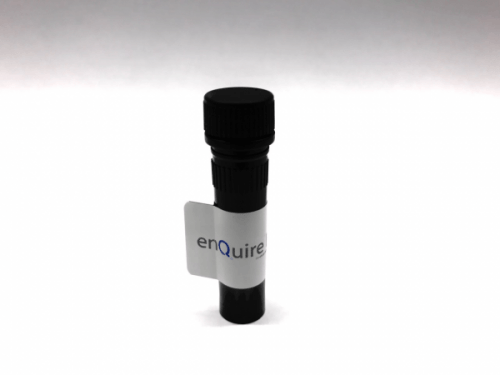Human MARCKS-related protein Recombinant Protein Product Attributes
Product Type: Recombinant Protein
Recombinant MARCKS-related protein based upon sequence from Human
Host: QP6346 protein expressed in E. coli.
Tag: GST
Protein Construction: A DNA sequence encoding the Homo sapiens (Human) MARCKS-related protein, was expressed in the hosts and tags indicated. Please select your host/tag option, above.
Recommended Applications: Immunogen, Protein Standard, Cell culture, or Other Cell Biology Applications.
Application Notes: Please contact us for application specific information for QP6346.
Bioactivity Data: Untested
Full Length? Full Length of BC066915
Expression Region: Met1 – Glu195
Amino Acid Sequence: MGSQSSKAPR GDVTAEEAAG ASPAKANGQE NGHVKSNGDL SPKGEGESPP VNGTDEAAGA TGDAIEPAPT SQGAEAKGEV PPKETPKKKK KFSFKKPFKL SGLSFKRNRK EGGGDSSASS PTEEEQEQGE IGACSDEGTA QEGKAAATPE SQEPQAKGAE ASAASEEEAG PQATEPSTPS GPESGPTPAS AEQNE
Purity: Greater than 80% as determined by SDS-PAGE.
Reconstitution Instructions: Concentrated protein in liquid format. Reconstitution is not necessary.
Concentration of Human MARCKS-related protein Protein:
Endotoxin Levels: Not determined.
Buffer: Tris-based buffer, 50% glycerol
Storage Conditions: Store at -20C to -80C.
| Recombinant Human MARCKS-related protein Protein General Information | |
|---|---|
| Alternate Names | |
| F52, MLP1, MLP, MRP, MACMARCKS | |
| Curated Database and Bioinformatic Data | |
| Gene Symbol | MARCKSL1 |
| Entrez Gene ID | 65108 |
| Ensemble Gene ID | ENSG00000175130 |
| RefSeq Protein Accession(s) | NP_075385.1 |
| RefSeq mRNA Accession(s) | NM_023009.6 |
| UniProt ID(s) | P49006 |
| UniGene ID(s) | Hs.75061 |
| HGNC ID(s) | HGNC:7142 |
| COSMIC ID Link(s) | MARCKSL1 |
| KEGG Gene ID(s) | hsa:65108 |
| PharmGKB ID(s) | PA30857 |
| General Description of Recombinant Human MARCKS-related protein Protein. | |
| Controls cell movement by regulating actin cytoskeleton homeostasis and filopodium and lamellipodium formation. When unphosphorylated, induces cell migration. When phosphorylated by MAPK8, induces actin bundles formation and stabilization, thereby reducing actin plasticity, hence restricting cell movement, including neuronal migration. May also affect cancer cell migration. May be involved in coupling the protein kinase C and calmodulin signal transduction systems | |
Limitations and Performance Guarantee
This is a life science research product (for Research Use Only). This product is guaranteed to work for a period of two years when stored at -70C or colder, and one year when aliquoted and stored at -20C.




There are no reviews yet.